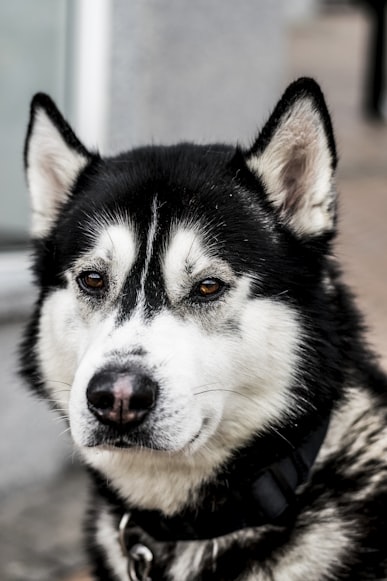I. Understanding Hyperactivity in Dogs

I. Understanding Hyperactivity in Dogs
Hyperactivity in dogs is a common behavioral problem characterized by excessive energy, impulsivity, and difficulty focusing. It can be a frustrating and challenging issue for dog owners to manage.
Definition and Causes of Hyperactivity
Hyperactivity is a condition in which a dog displays abnormally high levels of activity and restlessness. It can be caused by several factors, including:
- Genetics: Certain breeds are more prone to hyperactivity, such as Border Collies and Jack Russell Terriers.
- Medical conditions: Hyperthyroidism, allergies, and certain neurological disorders can trigger hyperactive behavior.
- Environment: Boredom, lack of exercise, and anxiety can contribute to hyperactivity.
Symptoms and Behaviors Associated with Hyperactivity
- Excessive running, jumping, and pacing
- Inability to settle down or relax
- Impulsivity and difficulty following commands
- Attention deficits and hyperfocus
- Destructive behaviors, such as chewing or digging
- Vocalizations, such as barking or whining
II. Nutritional Considerations for Hyper Dogs
While there is no specific diet that can “cure” hyperactivity, certain nutritional modifications can help manage and reduce the symptoms.
1. High-Protein Diet
Protein is a macronutrient that provides satiety and helps maintain blood sugar levels. A high-protein diet can help curb excessive energy and reduce restlessness.
2. Low-Carbohydrate Diet
Carbohydrates are often converted into glucose, which can fuel hyperactive behavior. Limiting carbohydrates in the diet can help decrease energy levels.
3. Fiber-Rich Diet
Fiber slows down digestion, helping to regulate blood sugar levels and promote sustained energy release.
4. Omega-3 Fatty Acid Supplementation
Omega-3 fatty acids have been shown to have calming effects. Supplementation with omega-3s may help reduce anxiety and hyperactivity in some dogs.
5. Avoid Stimulants
Caffeine and other stimulants can worsen hyperactive behavior. Avoid giving your dog food or treats that contain these ingredients.
III. Other Dietary Considerations
- Regular Feeding Schedule: Feed your dog on a consistent schedule to help regulate blood sugar levels and prevent energy crashes.
- Small, Frequent Meals: Offer smaller meals more frequently throughout the day to avoid overstimulation.
- Supplemental Calming Agents: There are over-the-counter supplements, such as chamomile or valerian root, that may have calming effects on dogs. Consult with your veterinarian before using any supplements.
Conclusion
Managing hyperactivity in dogs can be a complex issue that requires a multi-faceted approach. A balanced diet that addresses the nutritional needs of hyperactive dogs, combined with proper exercise, training, and environmental enrichment, can help reduce excessive energy and improve overall well-being. Always consult with your veterinarian to rule out any underlying medical conditions that may be contributing to your dog’s hyperactivity.
II. Dietary Considerations for Hyper Dogs

Calorie Management:
- Hyper dogs often have a higher energy expenditure than their sedentary counterparts. To maintain a healthy weight and prevent obesity, it’s crucial to manage their calorie intake.
- Consult with a veterinarian to determine the appropriate daily calorie requirement based on your dog’s age, breed, weight, and activity level.
- Consider reducing calorie intake if your dog exhibits signs of weight gain or if their activity levels have decreased.
Portion Control:
- Overfeeding can contribute to obesity and exacerbate hyperactivity in dogs. Determine appropriate meal portions based on the recommended daily calorie requirement.
- Use a measuring cup or kitchen scale to ensure accuracy.
- Divide the daily food intake into smaller, more frequent meals to prevent blood sugar spikes and energy crashes.
- Avoid free-feeding, as it can lead to excessive consumption. Instead, establish regular mealtimes and remove any uneaten food after a reasonable amount of time.
III. Recommended Food Ingredients for Hyper Dogs

Managing the diet of hyperactive dogs is crucial for promoting calmness and reducing excessive energy levels. Here are some recommended food ingredients that can help:
High-Protein Diets:
Protein provides essential amino acids that are involved in various bodily functions, including energy regulation. High-protein diets can help stabilize blood sugar levels and provide a sustained source of energy, reducing the likelihood of energy spikes and crashes that contribute to hyperactivity.
Low-Fat Diets:
Excessive fat intake can contribute to obesity and increase inflammation, both of which can exacerbate hyperactivity. Low-fat diets limit the amount of fat consumed, reducing overall energy intake and promoting a lean body mass.
Complex Carbohydrates:
Complex carbohydrates, such as brown rice, oatmeal, and sweet potatoes, are digested slowly, providing a steady release of energy over a longer period. This sustained energy supply helps prevent sudden energy surges and dips, contributing to a calmer demeanor in hyperactive dogs.
Additional Recommended Ingredients:
-
Omega-3 Fatty Acids: These essential fatty acids have anti-inflammatory properties that can help reduce stress and hyperactivity. They can be found in fish oil, flaxseed, and walnuts.
-
L-Theanine: An amino acid found in green tea, L-theanine promotes relaxation and reduces anxiety, which can be beneficial for hyperactive dogs.
-
Tryptophan: An amino acid that promotes the production of serotonin, a neurotransmitter involved in mood regulation. Foods rich in tryptophan include turkey, cottage cheese, and eggs.
Avoid These Ingredients:
Certain ingredients can worsen hyperactivity in dogs. Avoid feeding your hyperactive dog foods that contain:
-
Simple Sugars: Sugary treats and processed foods can cause spikes in blood sugar levels, leading to increased energy and excitability.
-
Caffeine: Caffeine is a stimulant that can exacerbate hyperactivity. Avoid giving your dog coffee, tea, or energy drinks.
-
Artificial Additives: Artificial flavors, colors, and preservatives can irritate the digestive system and contribute to anxiety and hyperactivity.
By incorporating the recommended ingredients and avoiding the ones to be avoided, you can create a diet that helps manage your hyperactive dog’s energy levels and promotes overall calmness. It is important to consult with a veterinarian before making any significant changes to your dog’s diet.
IV. Foods to Avoid for Hyper Dogs

As a responsible pet parent, it’s crucial to understand which foods to avoid for hyper dogs. Certain ingredients can exacerbate their hyperactive behaviors, leading to increased restlessness and potential health issues.
1. Simple Sugars
Simple sugars, such as glucose and fructose, provide a quick burst of energy that can lead to rapid energy crashes and increased irritability. Avoid foods high in simple sugars, such as white bread, sugary drinks, and candy.
2. Artificial Stimulants
Artificial stimulants, like caffeine and taurine, can further stimulate hyperactive dogs and lead to anxiety, heart palpitations, and other adverse effects. Avoid giving your dog foods or treats that contain these ingredients.
3. High-Histamine Foods
Histamines are chemicals that can trigger inflammation and restlessness in some dogs. Foods high in histamine include:
- Aged meats (e.g., salami, pepperoni)
- Fermented foods (e.g., sauerkraut, kombucha)
- Spices (e.g., chili powder, black pepper)
- Certain fruits (e.g., pineapple, strawberries)
- Certain vegetables (e.g., spinach, tomatoes)
While some histamine-containing foods may not cause issues for all hyper dogs, it’s best to observe your pet closely and avoid these foods if you notice any increase in hyperactivity.
Additional Tips
- Read ingredient labels carefully: Check for hidden sources of simple sugars and artificial stimulants.
- Choose high-quality foods: Look for diets designed for active dogs with a balanced blend of carbohydrates, proteins, and fats.
- Avoid changes to diet without veterinary consultation: Abrupt changes in diet can disrupt the digestive system and worsen hyperactivity in some dogs.
- Consider a limited ingredient diet: If your dog is highly sensitive to specific ingredients, a limited ingredient diet can help identify triggers and reduce hyperactive symptoms.
By eliminating these foods from your dog’s diet, you can help manage their hyperactivity, promote better behavior, and improve their overall well-being.
V. Meal Frequency and Timing

Smaller Meals Throughout the Day
To manage a hyper dog’s energy levels, it’s crucial to regulate their blood sugar levels. Eating smaller meals throughout the day instead of one large meal can help stabilize their glucose levels. This prevents sudden energy spikes and subsequent hyperactivity.
Avoid skipping meals, as this can lead to low blood sugar, making your dog more excitable and reactive. Instead, aim for 2-3 small meals per day, spaced evenly throughout the day.
Evening Meals
Before bedtime, consider giving your hyper dog a larger, protein-rich meal. Protein takes longer to digest, providing a steady source of energy throughout the night. This can have a calming effect and promote relaxation, helping your dog settle down and rest peacefully.
Additional Tips
- Avoid feeding your dog before exercise. This can lead to GI upset and make them more prone to hyperactivity.
- Consider using a slow feeder or puzzle toy. These can slow down your dog’s eating, helping to control their blood sugar levels.
- Avoid sugary treats and high-carbohydrate foods. These can provide a temporary energy boost, followed by a crash that can increase hyperactivity.
- Consult with your veterinarian before making any significant changes to your dog’s diet. They can provide personalized recommendations based on your dog’s specific needs and health condition.
VI. Supplementation and Additives
Hyperactive dogs can benefit from specific supplements and additives that support brain health and promote relaxation.
1. Omega-3 Fatty Acids
Omega-3 fatty acids, particularly DHA and EPA, possess anti-inflammatory properties that support brain health and function. These fatty acids have been shown to reduce hyperactivity and improve cognitive performance in dogs. Consider adding supplements containing fish oil or algae oil to your dog’s diet to boost their Omega-3 intake.
2. L-Theanine
L-theanine is an amino acid naturally found in green tea and certain mushrooms. It has calming and stress-reducing effects on the nervous system. Supplementation with L-theanine can help to reduce anxiety and hyperactivity in dogs, promoting a more relaxed and focused state.
3. Calcium and Magnesium
Calcium and magnesium are essential nutrients for maintaining nerve function and muscle relaxation. Calcium has a calming effect on the nervous system, while magnesium helps to reduce muscle tension and anxiety. Ensure your dog’s diet provides adequate levels of these nutrients through a balanced diet or supplementation.
Additional Considerations:
When selecting supplements or additives, choose high-quality products from reputable manufacturers. Consult with your veterinarian before introducing any new substances into your dog’s diet, especially if they have underlying health conditions. It’s important to note that supplements and additives should be used alongside a balanced diet and appropriate exercise to effectively manage hyperactivity in dogs.
VII. Exercise and Activity
For hyper dogs, exercise and mental stimulation play a crucial role in managing their excessive energy levels and promoting calmness.
Regular Exercise
Regular physical exercise is essential for hyper dogs. It provides an outlet for their pent-up energy, helping them burn off excess calories and reduce restlessness. Daily walks, runs, or playtime in the park are recommended activities.
- Frequency: Aim for at least 60-90 minutes of moderate-intensity exercise per day.
- Duration: Adjust the length of exercise sessions based on your dog’s stamina and fitness level.
- Intensity: Choose activities that provide enough challenge and interest to stimulate your dog both physically and mentally.
- Variety: Engage in different exercises to keep your dog interested and prevent boredom. This could include walks, runs, fetch, swimming, or agility.
Mental Stimulation
In addition to physical exercise, providing mental stimulation is equally important for hyper dogs. Challenges and engaging activities help them stay mentally alert and prevent boredom, which can contribute to hyperactivity.
- Interactive toys: Puzzle feeders, treat-dispensing toys, and chew toys encourage mental activity.
- Training: Obedience training, trick training, and agility provide both physical and mental stimulation, while also strengthening your bond.
- Scent games: Hide treats or toys around the house for your dog to find, using their keen sense of smell.
- Exploration: Take your dog on different walks in new environments to provide sensory stimulation and challenge their cognitive abilities.
By incorporating regular exercise and mental stimulation into your dog’s daily routine, you can effectively manage their hyperactivity, promote calmness, and enhance their overall well-being.
VIII. Monitoring and Evaluation
Monitoring the effectiveness of a dog diet for hyper dogs is crucial for ensuring optimal results. Here are the key aspects to consider:
1. Tracking Weight and Energy Levels:
Regularly weigh your dog to monitor any weight changes. If your dog starts losing or gaining weight, adjust the calorie intake accordingly.
Observe your dog’s energy levels throughout the day. If your dog is still exhibiting hyperactive behavior, the diet may need further adjustments.
2. Observing Behavioral Changes and Adjusting the Diet as Needed:
Pay attention to your dog’s behavior for any changes. If your dog becomes more relaxed or less hyperactive, it could be a sign that the diet is working.
If your dog’s behavior does not improve or worsens, consult with your veterinarian or an animal nutritionist to further refine the diet.
3. Consulting with a Veterinarian or Animal Nutritionist for Personalized Recommendations:
Seek professional guidance from your veterinarian or an animal nutritionist to create a personalized diet plan tailored to your dog’s specific needs.
They can help you determine the appropriate calorie intake, macronutrient balance, and any special dietary requirements based on your dog’s age, breed, and overall health.
Regular check-ups with your veterinarian are also essential to monitor your dog’s progress, ensure proper nutrition, and address any health concerns that may arise.
Remember, every dog is unique, and what works for one may not work for another. By monitoring your dog’s weight, energy levels, and behavior, and consulting with a professional, you can adjust the diet as needed to achieve optimal calming and health benefits for your hyperactive canine companion.


















